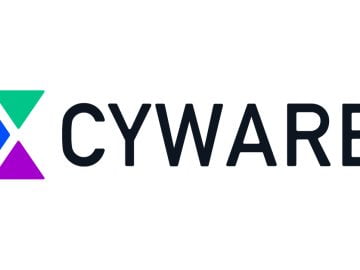The pandemic shook businesses to its core, forcing users to trade in their office chairs for home desks. The result? Users, devices, and data scattered across the world. And for those in the networking and security fields, this shift brought major challenges. The traditional castle and moat access approach was no longer enough, and even the most reliable security tools became obsolete.
Businesses are at a crossroads, trying to decide whether to stick with a familiar approach or embrace this new form of work. This presents a golden opportunity for businesses to improve and innovate. With this in mind, Axis collaborated with Cybersecurity Insiders to release the industry’s first . Here’s what you need to know from the report.
The new normal: A mobile workforce
As the pandemic recedes into the rearview mirror, the familiar bustle of office life is not quite as bustling as before. Companies have come to understand that a contented workforce is a productive one, and thus, many have allowed employees the freedom to work from home or opt for flexible work arrangements. A staggering 78% of companies have embraced the hybrid work model, while an additional 10% are fully committed to remote work.
This move towards a hybrid workforce ushers in our first report highlight: conventional access methods don’t cut it in this new world of work. With a plethora of tools created specifically for securing the hybrid workforce, businesses are re-evaluating their bulky hardware, software, and data center-centric solutions for modern ones that provide more ease and simplicity.
Streamlining security through consolidation
The numbers don’t lie – 63% of businesses are juggling three or more security solutions, with 22% dealing with a dizzying six or more. The task of managing this maze of solutions is not for the faint of heart – it’s complex, costly, and time-consuming. Teams must navigate multiple user interfaces, pay for new hardware with each renewal cycle, and spend countless hours learning and troubleshooting.
This leads us to our next report highlight – security and networking leaders will look for solutions that allow them to simplify and slim down their security landscape. They want to streamline their setup, save money, and find a single solution that can replace, not just augment, their existing security infrastructure. Enter Security Service Edge (SSE) platforms – the consolidating solution that businesses are turning to in droves.
As organizations explore the benefits of SSE, they’re eyeing the platform to perform some serious heavy lifting. 63% are looking to say goodbye to enterprise VPN, 50% are seeking to retire SSL inspection, and 44% want to eradicate DDoS, among other inbound and outbound security stack solutions. With SSE, the goal is to keep security simple, cost-effective, and streamlined.
SSE is actually driving strategy
The rise of Security Service Edge (SSE) has been nothing short of spectacular, captivating the attention of the cybersecurity world with its prowess and potential. In just two short years, SSE has garnered recognition among 71% of cybersecurity professionals, solidifying its status as a game-changer in the field.
As businesses look to the future, it’s no surprise that 65% have their sights set on adopting SSE in the next 24 months, with a staggering 43% planning to fully implement it by the end of 2023. SSE has quickly become a strategic priority, with 67% of businesses planning to launch their SASE journey with it versus WAN Edge Services.
But what makes SSE truly special? According to the report, it’s seen as the crown jewel of a zero trust strategy, outranking SSO, MFA, endpoint security, and SIEM providers in its importance. With 47% of respondents eager to begin their SSE journey with Zero Trust Network Access (ZTNA) technologies, it’s clear that organizations are ready to embrace this cutting-edge solution.
Prioritizing the right SSE project
The IT world is buzzing with excitement over SSE, but where to begin? What should be their starting point? The report revealed that a whopping 48% of organizations have their sights set on securing remote and hybrid access for employees, marking the starting line of their SSE journey.
The urgency to secure the workforce’s connectivity while keeping pace with the evolving business needs is the fuel that propels the SSE engine. This is where the SSE revolution truly roars to life, charging ahead towards a secure, connected, and adaptable future.
Explore the future of secure access with SSE
The future of work has arrived and it’s in the form of a hybrid workforce! This is a golden opportunity for IT and security experts to bid farewell to the hassle of multiple, outdated tools and welcome a more secure and advanced access system with open arms. Don’t let this chance pass you by! If your team hasn’t delved into the business implications of an SSE platform, it’s high time you did. Deep-dive into these findings check out the for an in-depth look at the future of secure access.
Ad




